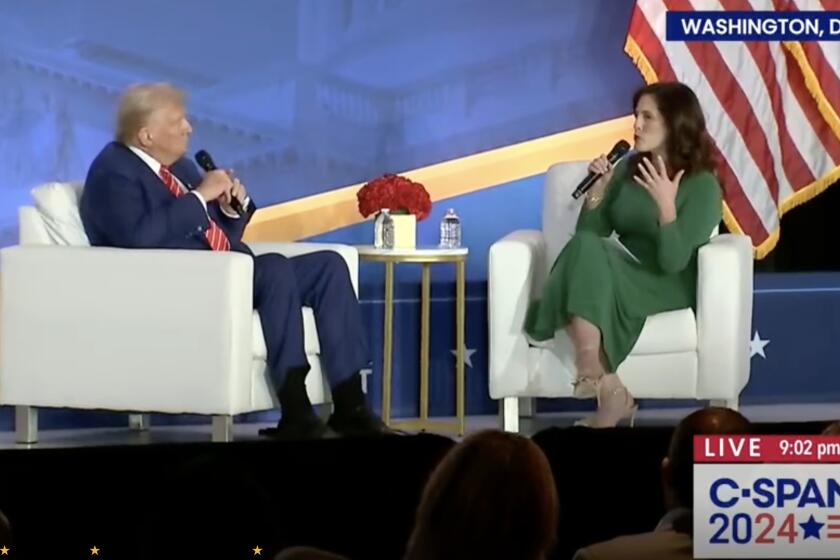USX to Pay Out $41.8 Million in Racial Bias Suit
PHILADELPHIA — USX Corp. agreed to pay $41.8 million to settle a class-action suit that accused the steelmaker of race discrimination in hiring at its Fairless Hills plant during the 1970s, the company and attorneys said Tuesday.
The settlement--which the company called “distressing”--included about $7 million for legal fees, according to attorneys for the plaintiffs.
The agreement was filed Tuesday in U.S. District Court for Judge Clarence Newcomer’s approval. It would end about 15 years of litigation in the case.
No money will be distributed until final approval after a court hearing this spring or summer, said Creed C. Black Jr., one of the attorneys for the estimated 10,000 people in the class of black men and women who brought the suit.
Black said if Newcomer grants preliminary approval to the settlement, notices and claim forms could be sent out within the next few weeks.
“It took 15 years, but we’re glad we have an agreement with USX that will fairly compensate the class members for what happened at Fairless Hills,” Black said.
The company said it believes that its hiring practices were non-discriminatory.
Black, in a statement, said the lawsuit contended that thousands of black men and women “were rejected for entry-level production and maintenance jobs as laborers” during the 1970s.
Black said settlement checks could average several thousand dollars per person, depending on how many claims are submitted.
USX, in a statement, said that in the period covered by the lawsuit, more than 17% of the applicants hired at the Fairless Works were black, while the percentage of blacks in “relevant labor markets serving the plant” was 9.5% to 11.5%.
The company said the court found that the “record is clear that, throughout the class period, USX hired minorities for production and maintenance jobs at rates equaling or exceeding their representation in the geographical labor market.”
In an unrelated story, the government sued USX Monday, seeking to force the steelmaker to shut down its coke ovens in Clairton, Pa., until the company brings them into compliance with air pollution standards.
The government filed suit in U.S. District Court asking for permission to shut down 12 coke batteries and force the company to pay fines of up to $25,000 for each day it has violated the federal Clean Air Act.
More to Read
Inside the business of entertainment
The Wide Shot brings you news, analysis and insights on everything from streaming wars to production — and what it all means for the future.
You may occasionally receive promotional content from the Los Angeles Times.










